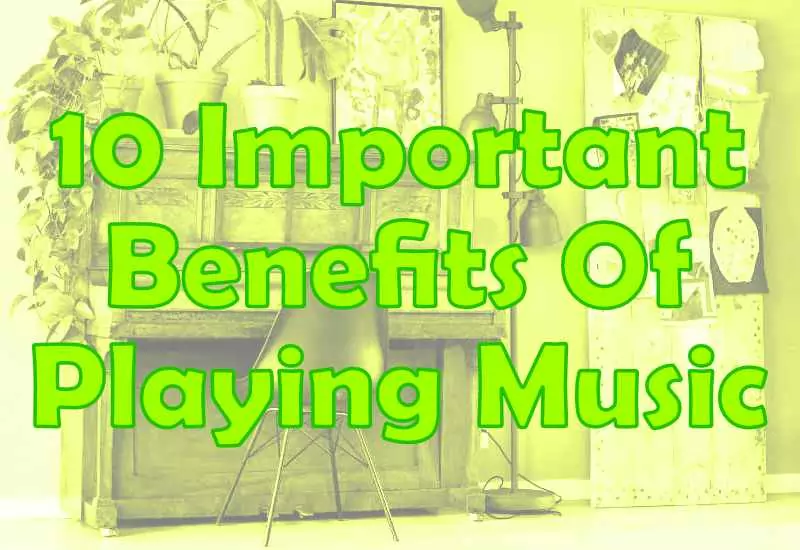10 Important Benefits of Playing Music

Contents
Music is like food for the soul. It is soothing not only to the ears but also to the mind. As much as it has provided a lot of benefits to teens and adults, it has also worked wonders for kids.
Studies show that music has been proven to benefit your child to various extents such as language, science, mathematics, arts, and many more. Significantly, musical activities like singing, playing musical instruments, or merely listening to music can develop new synapses. These lead to an improved brain function in children.
“Studies show that music has been proven to benefit your child to various extents such as language, science, mathematics, arts, and many more.”[1]
Related: Read up on how music is important to our brain development.
10 Benefits of Playing Music

Courtesy by Pexels
But aside from that, there are more benefits of playing music we may not be aware of that contributes to the advancement of our kids. Let’s learn some of them in the section below.
-
Communication skills
Music stimulates the left side of the brain, which is associated with oral and critical areas. This means that as music is played by an individual, his left brain is being conditioned to recognize words and sounds easily; thus helping children focus in developing reading and writing skills, as well as remembering information through songs.
-
Cognitive skills
We know that music can change our moods. But did you also know that it can develop cognitive skills, especially among children? Studies show that individuals who undergo musical training or those who practice playing musical instruments have better memory and concentration skills, among others. This is because learning music allows individuals to practice significant levels of concentration, which in return, trains children to become more focused even for long periods.
-
Problem solving skills
Music is not all about sounds. It involves rhythms, fractions, patterns, and even problem solving. When you listen to every beat of a song, you are actually using mathematics in a specific way. Children who are involved in music are proven to have the ability to retain and retrieve visual images which are some of the skills needed when solving advanced math problems.
-
Discipline
Playing and learning music takes time. It does not happen all in one day but rather it needs practice, patience, and discipline to become adept at it or at least understand it. While children who study music are still young, they are not only able to practice patience and commitment into what they are doing, but they are also developing the value of self-discipline.
-
Coordination skills
Coordination skills are needed in music in the same way that they are needed in sports and other activities. For instance, playing the piano while reading the notes involves using your sense of touch, seeing, and hearing. Thus, having this skill is necessary to perform a song or musical piece very well. At an early age, children can be an expert when it comes to managing their bodies and minds both at the same time, all thanks to music.
-
Social skills
During music lessons, children get to interact with other children as well. Especially when making or playing songs with a band or a choir, social skills are being used and improved among them. Developing social and emotional skills is important for a person to communicate and connect with other people effectively.
-
Sense of Achievement
Not everyone can learn how to play music. So it really gives a sense of achievement, especially for children when they learn something new every day. Music takes a lot of time, effort, and patience. But afterwards, when you are able to master and play a musical piece, it is all worth it. And later on in life, that achievement can boost self-confidence and help children learn how important it is to value hard work and discipline.
-
Boosts Mood
Truly, music has the power to change our moods and way of thinking in an instant. Whether you are listening to a sad song or a happy song, it can affect us in some way. On the brighter side, children who are exposed to happy music are expected to be more energetic and inspired to do their activities. This is because scientific studies have found that listening to music that you enjoy can help produce oxytocin – a hormone related to happy emotions.
-
Joy and Satisfaction
Listening to music can give us a rewarding feeling of joy and satisfaction. But playing it is another thing. The happiness that you can get from playing music is extraordinary since it is you that produces it.
-
Self expression
Music is a fun and creative way to express oneself. It allows people of all ages, including children to show their uniqueness and style while being able to speak their mind through a song.
Conclusion
These are only some of the benefits of playing music that children and adults can get from listening and playing music. Indeed, music has the ability to improve our lives whether in terms of productivity, skills, perspective, relationships and our health.
It is important that as children grow, they are able to identify which kind of activities they find interesting. And if music is one of them, you should show care, support, and encouragement as these are essential for them to succeed not only in their hobbies but also in their lives in general.
Parents, Teachers & Sheet Music Seekers:
If I offered to provide you hundreds of legit sheet music PDFs for your kids:
- Brand-New & Exclusive Compositions
- Age & Level Appropriate
- With INSTANT Online Access
- Worry-FREE Licensing & Copyright
...would you take me up on that offer?
ABOUT
I started Music4Kids with a simple goal in mind: To provide valuable information to guiding parents who want to raise musically inclined kids.
Click to read on